Opening Plenary to salute groundbreaking research leading to clinical breakthroughs
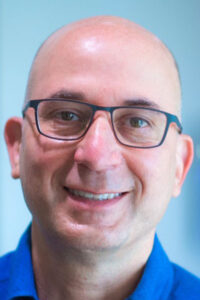
The presenters during the American Association for Cancer Research Annual Meeting 2021 Opening Plenary Session will share how the latest scientific advances continue to lead to important clinical breakthroughs on many different fronts.
Opening Plenary Session: Discovery Science Driving Clinical Breakthroughs will take place from 10:15 a.m. – 12:45 p.m. on Sunday, April 11. Planning Committee Chair Charles Swanton, MBPhD, FAACR, will moderate the session. Registered attendees will have access to watch a replay of the session through June 21, 2021.
Jonathan S. Weissman, PhD, Whitehead Institute, will explain how new technology allows researchers to study critical events in the life of the tumor. Through work done with genetically engineered mouse models of human cancers, Weissman and colleagues have reconstructed a phylogenic tree of tumor cells.
“Following tumor evolution and metastasis with a single cell ‘molecular flight recorder’” will touch on research published in Science in February along with more recent unpublished results and will explain a different way to think about using CRISPR technology that provides a high-resolution way to reconstruct rare, key events in a tumor’s past, similar to how a flight recorder provides evidence following an airplane crash.
“We can now see big differences in the tumor that determine how likely it is to metastasize and identify individual genes that are modulating its ability to metastasize,” Weissman said. “And since metastases are the things that cause tumors—in most cases—to be lethal, this gives us insights into how it might be [possible] to prevent the process of metastasizing and spreading of tumors.”

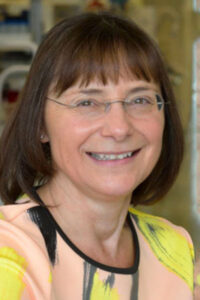
During “Food for thought: A conversation about the role of diet in cancer,’” co-presenters Karen H. Vousden, PhD, FAACR, Francis Crick Institute, and Matthew G. Vander Heiden, MD, PhD, Koch Institute for Integrative Cancer Research, will discuss the possibility that making evidence-based changes to diet can improve cancer therapy.
Vousden and Vander Heiden will cover how changes in nutrient availability can provide a powerful tool in treating cancer, alongside more traditional cancer treatments, when the mechanisms underlying the nutrient demands of the cancer are understood. Those demands depend on many factors, including the genetics of the cancer, the organ of cancer origin, and the tumor environment.
While highlighting evidence that shows that the levels of nutrients in a diet can impact tumor nutrient levels, the presenters caution that whether that affects tumor growth depends on overall context. Effective incorporation of precision nutrition into care to improve therapy requires a deep understanding of cancer biology at a molecular level and cancers’ metabolic vulnerabilities.
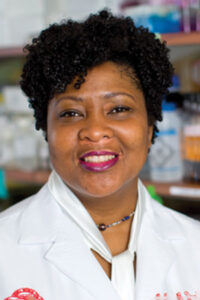
Melissa B. Davis, PhD, Weill Cornell Medical College, will explain in her talk “ Ancestry and cancer disparities: Genomic sequencing in diverse populations,” how cutting-edge genomics platforms and “Oncologic Anthropology” address biological determinants of cancer disparities. Davis will review work from the International Center for the Study of Breast Cancer Subtypes, where she is the scientific director, and the PolyEthnic 1000 projects from the New York Genome Center, where she serves as a co-principal investigator of the center’s breast/prostate cancer project and is also a Cancer Ethnicity Scholar.
The presentation will make connections between social history and genetic ancestry and show potentially transformative findings, illustrating how expanding all research cohorts to include ethnic diversity will uncover tumor biology distinctions, especially in an immunological context.
“Multiple factors drive disparate outcomes that traverse the space of social determinants to systematic exclusion of under-represented minorities in cancer research that continue to perpetuate disparate outcomes,” Davis said. “Using the concepts of genetic ancestry to better inform racial differences in presentation and progression of cancer—and subtypes of cancer—can harness diversity as a tool to uncover genetic drivers.”
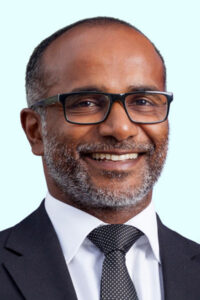
The current cancer biology paradigm views cancer as evolving predominantly through the context of sequential genetic mutations, but during “Epigenetic mechanisms of malignant clonal dominance and immune evasion,” Mark A. Dawson, PhD, Peter MacCallum Cancer Center, will share as yet unpublished data that shows that while genetic mutations are important, not all cancer behavior can be explained by the genome itself and that non-genetic features profoundly influence cancer behavior.
While genetic mutations that give rise to cancer establish malignant cell behavior, that behavior can be nuanced and changed without any further mutations in the genome, said Dawson. Malignant cell behavior has heritable components that are not influenced by mutations in the genome. Understanding the non-genetic mechanisms that direct cancer cell behavior is critical. Not all of the seminal features of cancer behavior—tumor initiating capacity, the ability to evade the immune system, the ability to compete against other cancer cell clones and win, the ability to evade drugs and to develop drug resistance—can be explained purely by genetic mutations.
“If we’re going to aspire to bring forth this era of precision medicine, precision medicine cannot just be based around finding a mutation and targeting that mutation because what I will show is that cancer cell clones with the exact same mutation actually behave very differently within the same individual,” Dawson said.
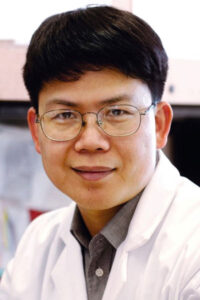
The plenary’s final presenter, Zhijan James Chen, PhD, UT Southwestern Medical School, will present “Igniting an immune response with cGAS.” A DNA sensing enzyme, cGAS produces the second messenger cyclic GMP-AMP (cGAMP), which binds and activates STING, leading to induction of type-I interferons and other cytokines.
The cGAS-STING pathway activates immune responses to DNA in the cytoplasm, serving as the body’s first line of defense against infections by pathogens containing DNA. It also plays a critical role in immune defense against tumor cells and inhibits tumor growth in preclinical mouse models.
“Although immune checkpoint inhibitors such as the PD-1 antibody are highly effective for some cancer patients, the majority of patients still do not respond to currently available therapies,” Chen said. “By better understanding innate immunity and harnessing the power of this endogenous antitumor pathway, new therapies might be developed to bring benefits to more patients.”
